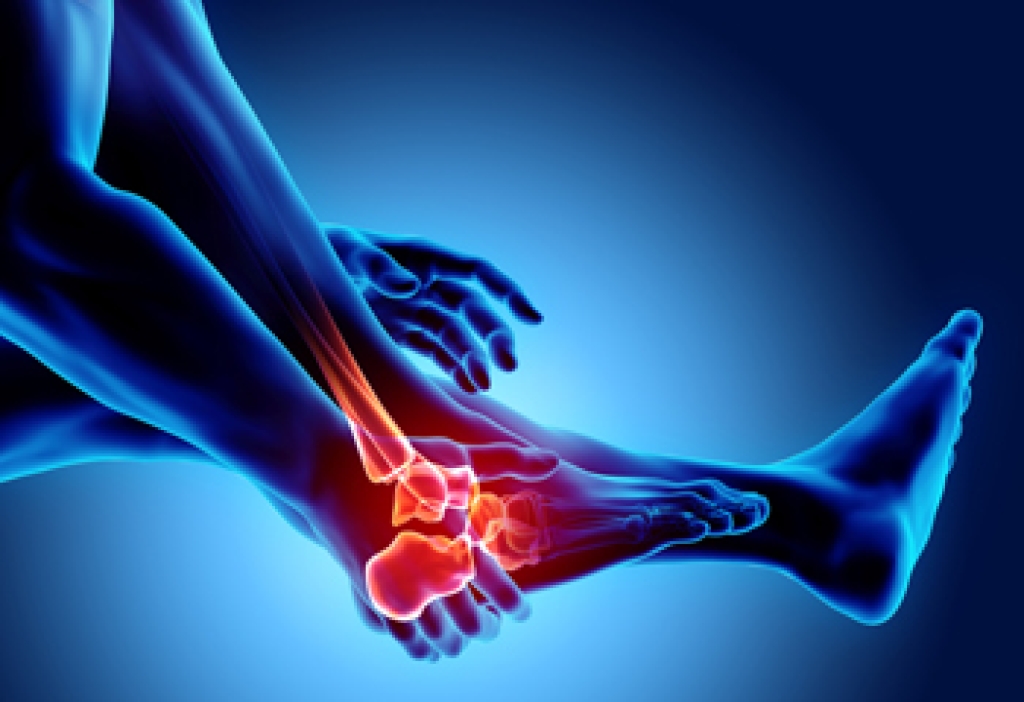
Psoriatic arthritis or PsA is an inflammatory arthritis that can affect people with psoriasis. Psoriasis is a condition that causes red patches of skin with silvery scales on the body. PsA causes pain, swelling, and tenderness in the joints and can affect one’s toes, toenails, soles, heels, and ankles. A common symptom of PsA is swelling of one or more toes. This is known as dactylitis and gives the toe a sausage-like appearance. In fact, swelling of various parts of the foot is common with PsA and can be accompanied by color changes and extreme tenderness. A heel ailment, called enthesitis, can also affect those with PsA. This is characterized by inflammation at the point where tendons and ligaments connect with the bone and can impact the Achilles tendon and the soles of the feet among PsA sufferers. Nail problems can also occur among people with PsA, especially those who have nail psoriasis. The nails may appear pitted, with ridges, flaking, and discoloration, and there may be a lifting up of the nail. This might happen because of inflammation and cellular disruption caused by PsA. The goal of treating PsA-related foot problems is to reduce pain and prevent permanent damage to bones. If you have PsA and are suffering with foot pain, you might see a podiatrist who can help you in developing a plan of treatment towards living a more comfortable life.
Arthritis can be a difficult condition to live with. If you are seeking treatment, contact Edward Fryman, DPM, FACFAOM from Seaford Foot Care Center. Our doctor can provide the care you need to keep you pain-free and on your feet.
Arthritic Foot Care
Arthritis is a term that is commonly used to describe joint pain. The condition itself can occur to anyone of any age, race, or gender, and there are over 100 types of it. Nevertheless, arthritis is more commonly found in women compared to men, and it is also more prevalent in those who are overweight. The causes of arthritis vary depending on which type of arthritis you have. Osteoarthritis for example, is often caused by injury, while rheumatoid arthritis is caused by a misdirected immune system.
Symptoms
- Swelling
- Pain
- Stiffness
- Decreased Range of Motion
Arthritic symptoms range in severity, and they may come and go. Some symptoms stay the same for several years but could potentially get worse with time. Severe cases of arthritis can prevent its sufferers from performing daily activities and make walking difficult.
Risk Factors
- Occupation – Occupations requiring repetitive knee movements have been linked to osteoarthritis
- Obesity – Excess weight can contribute to osteoarthritis development
- Infection – Microbial agents can infect the joints and trigger arthritis
- Joint Injuries – Damage to joints may lead to osteoarthritis
- Age – Risk increases with age
- Gender –Most types are more common in women
- Genetics – Arthritis can be hereditary
If you suspect your arthritis is affecting your feet, it is crucial that you see a podiatrist immediately. Your doctor will be able to address your specific case and help you decide which treatment method is best for you.
If you have any questions please feel free to contact our office located in Seaford, and Bethpage, NY . We offer the newest diagnostic tools and technology to treat your foot and ankle needs.
